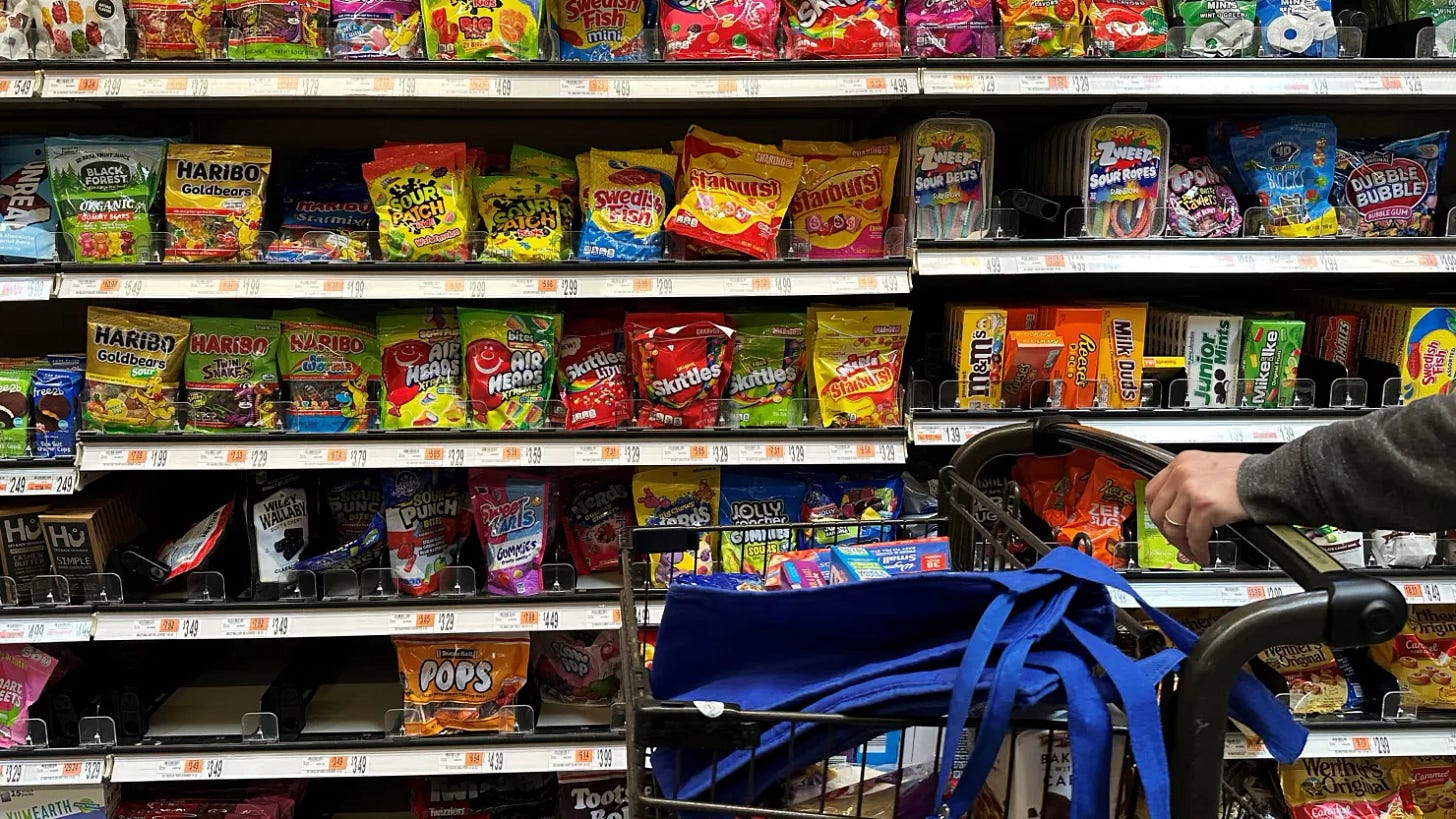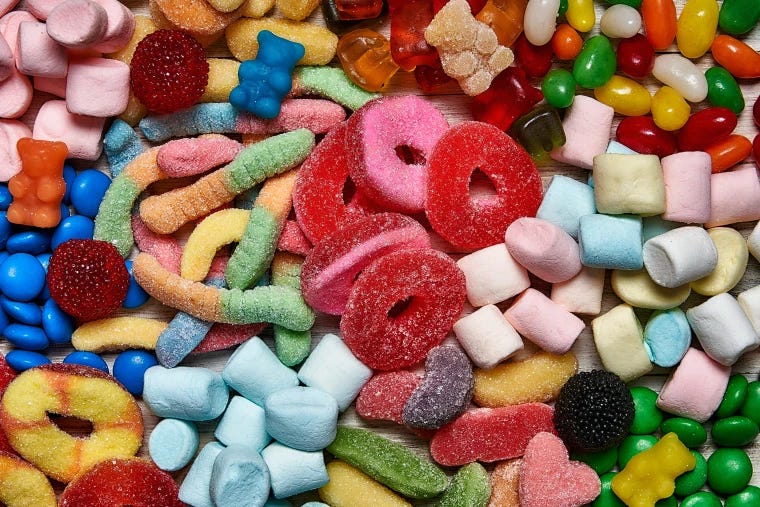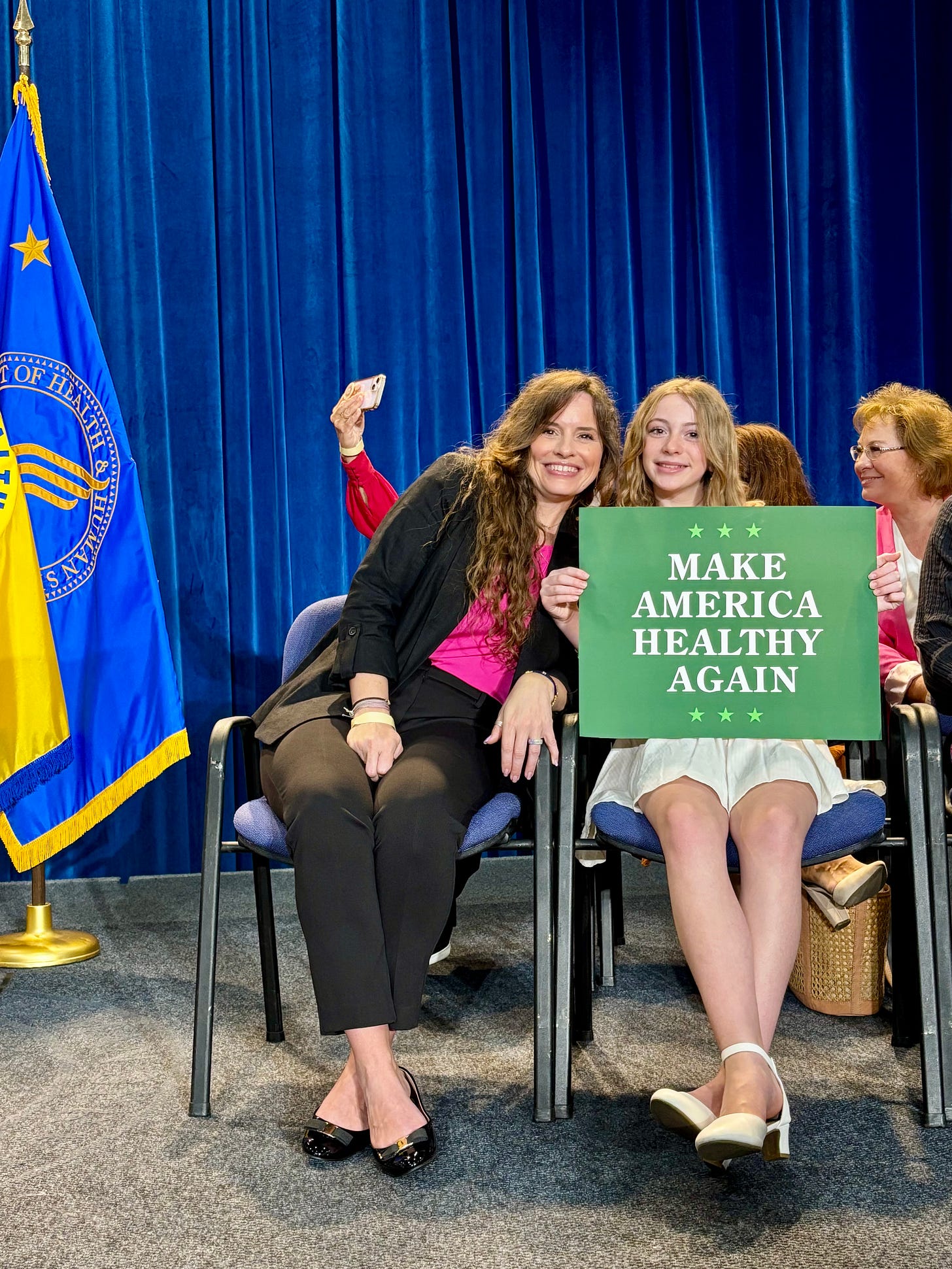By Jennifer Galardi, Contributing Writer, The Kennedy Beacon
On Tuesday, during a boisterous press conference in Washington, D.C., HHS Secretary Robert F. Kennedy Jr., along with FDA Commissioner Dr. Marty Makary, announced plans to phase out eight artificial dyes in the United States.
“For the last 50 years, American children have increasingly been living in a toxic soup of synthetic chemicals,” Makary said in making the announcement, the highlights of which were later posted on the HHS website.
In an alignment with Kennedy’s and President Trump’s commitment to make America healthy again, the FDA plans to phase out petroleum-based synthetic dyes from the U.S. food supply.
Makary outlined six action items that would help initiate the dye ban: establishing a national standard and timeline with which food companies would have to comply; initiating the process to revoke authorization to ban Citrus Red No. 2 and Orange B within the coming months; working with the food industry to eliminate the remaining food dyes from the food supply by the end of year; authorizing four new natural color additives; partnering with the NIH to research the effect of food additives on children; and requesting food companies to remove FD&C Red No. 3 sooner than the 2027-2028 deadline previously required.
Makary even offered solutions to food companies, holding up little carafes of beet, watermelon and carrot juice, suggesting they use these to enhance color in their manufactured food.
The long anticipated federal dye ban follows similar moves at both federal and state levels.
Just before Secretary Kennedy was confirmed to lead HHS, the Biden administration banned Red No. 3. When asked if Kennedy would give the previous president credit for “getting the ball rolling with red dye 3,” Kennedy acknowledged the effort but noted with a chuckle, “I wish it hadn’t taken him [until] one week before I came into office before he did it.”
West Virginia banned harmful food dyes from school lunches earlier this month. Similarly, Utah passed a bill preventing food dyes from school lunches (HB402) as well as a bill that restricts candy and soda purchases via SNAP funds (HB403). The Utah bills will take effect on May 7.
Both Governor Morrisey of West Virginia and the Speaker of the Utah House, Mike Schultz, were on hand to offer congratulations and comments. Morrisey said decisions like his may be difficult and unpopular, but necessary.
Other guest speakers included health and food advocates such as Dr. Mark Hyman and Vani Hari, known as “The Food Babe.” Calley Means, credited with initiating the alliance between President Trump and Secretary Kennedy, emphasized the importance of common sense, noting that when the study of food additives would be unethical because of their inherent substance – petroleum – it’s a problem.
“A peer reviewed placebo controlled study would involve giving children shots of crude oil every single day for years and seeing what happens,” Means said.
Never one to mince words, Means also called out the press in the room – pleading for them to stop covering the news cynically, calling the ban a “major win.”
He also posed a blunt question to Democrats: “Where are you?” He invited them to join the movement. “Come to the FDA and work with this administration on these unimpeachable issues. This is our children’s lives at stake,” he implored.
When Kennedy began his closing remarks, additional chairs were brought out for the overflow crowd, proving that the momentum for MAHA will not subside anytime soon.
Kennedy said that for the nation to fulfill President Trump’s mandate of making America great again, the country must return to the vigor and strength it once had under his uncle’s leadership, which he said his father, Robert F. Kennedy, called “beef jerky toughness.”
Like Means, Kennedy also pointed the finger at the media, calling their silence on children’s health issues “malpractice.” He blamed the enormous amount of money coming into media via advertising from the food and the pharmaceutical industries, saying that “extraordinary revenue stream” plays a part in “disabling [the media’s] capacity or inclination for skepticism and critical thinking.”
Kennedy took aim at the major food companies. “If they want to eat petroleum they ought to add it themselves at home, but they shouldn’t be feeding it to the rest of us,” he joked. However, he said food manufacturers are calling him every day asking what they need to do, saying they’re ready to change the industry. “They have children, too,” Kennedy said.
Kennedy hinted that HHS might be ready to take on the next elephant in the room: sugar. He called the sweet substance “poison” and “as addictive as crack.”
“Americans need to know that,” he stated. “It’s giving us a diabetes crisis.”
While he confirmed an outright sugar ban is impossible, he said he would work with congress to initiate adequate packaged food labeling to educate consumers, particularly mothers.
Finally, Kennedy acknowledged the efforts of the MAHA Moms and encouraged them to redouble their efforts. “We have them on the run now and we are going to win this battle,” he said.










Ive got a few years of medicine under my belt ..about 60 years as a matter of fact..in both Western and Eastern medicine. I helped cure a brittle diabetic by prescribing pure maple syrup to him instead of the aspartamme he was using…it brought his blood sugar down by 50%. He craved sweets and was using aspartame. Pure Maple syrup and pure undiluted raw honey are two of the most nutrient dense foods left. When the body craves sweets its looking for the nutrients which were associated with that flavor before industrialization created white sugar and molasses in the 19th Century and it was all downhill from their. Usually The more nutritionally deficient a person is the more they crave sweets. Most full sweet foods are loaded with vitamins and minerals but feed that person some empty calories like aspartame and their craving gets worse!!
Great! But there are many other food additives and ingredients that are suspect: MSG, bioengineered anything, GMO’s, natural flavors, non sugar sweeteners linked to cancer, preservatives, excessive sodium, and mysterious chemicals. Thanks for starting the revolution. I would look to what Europe allows or bans for various food products.
For example, our bread has changed over the years (GMO wheat is common) and when people travel in Europe they always mention how good the bread is, but they also lost weight eating tons of bread and pasta. This is worthy of investigation with the diabetes/obesity crises in the USA.